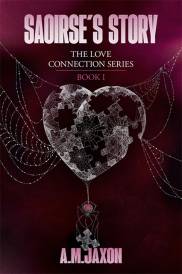Alexander Fehling Labyrinth of Lies
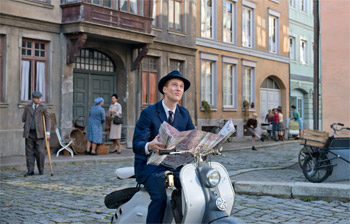
Alexander Fehling Labyrinth of Lies
Cast: André Szymanski, Alexander Fehling, Friederike Becht
Director: Giulio Ricciarelli
Genre: Drama, History
Rated: M
Running Time: 118 minutes
Synopsis: Frankfurt am Main 1958: The young public prosecutor Johann Radmann (Alexander Fehling) is at the very start of his career and, like all beginners, is sent to work on traffic offenses. The ambitious, idealistic jurist always strictly follows the law and does not even turn a blind eye to the enchanting traffic offender Marlene Wondrak (Friederike Becht). Nevertheless, he gives her 20 marks of his own money so that she can pay her fine. Outraged, she calls him a nitpicker. And Johann? He's head over heels in love!
When the journalist Thomas Gnielka (André Szymanski) makes a ruckus in the lobby of the Public Prosecutor's office, Johann Radmann pricks up his ears: By chance, Gnielka's friend Simon Kirsch (Johannes Krisch), an artist and former Auschwitz inmate, recognized the Gymnasium teacher Alois Schulz as one of his tormenters from the concentration camp, but no police station wants to file a complaint. The Public Prosecutor's office also refuses to investigate, and Senior Public Prosecutor Walter Friedberg (Robert Hunger-Bühler brusquely shows Gnielka and Kirsch the door. Only Johann pays no attention to his superiors' orders. Curious, he begins to investigate the matter on his own. Johann's research in the school board and U.S. Army Document Center proves that Schulz actually was a member of the Waffen SS in Auschwitz – and that this was the reason why he was not allowed to teach in a state-run school. When Johann reports about this at the weekly get-together of public prosecutors, Friedberg reluctantly promises to pass the case on to the Ministry of Culture. During a chance meeting with Gnielka at the courthouse, Johann proudly reports that he has successfully taken care of the matter. But Gnielka doubts that Schulz was truly suspended from his duties. And he notes that Johann – like most people of his generation – have absolutely no idea what "Auschwitz" truly was. "A shame," as Gnielka sees it.
To remedy this information gap, Johann tries to find out more about Auschwitz. This turns out to be anything but easy, since the library tells him that the sole available book on the topic would have to be ordered, which would mean a wait of at least two months.
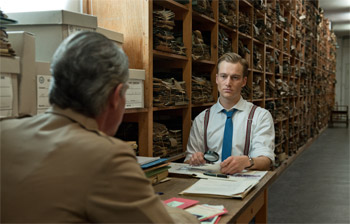 Sneaking into the Gymnasium, Johann sees that Gnielka's doubts were justified: Schulz continues to teach there without any impediment. In the meantime, Gnielka has resorted to action and stolen the Schulz file from Johann's office. He then publishes a fiery article about this "unspeakable scandal" in the Frankfurter Rundschau. As a consequence, Johann is requested to appear at the office of the Hessian Prosecutor General Fritz Bauer (Gert Voss). Although he can convincingly assure his highest superior that he did not give the journalist any documents concerning internal matters, what he hears from Bauer makes him feel anything but optimistic: Bauer makes it absolutely clear that the civil service is still permeated with Nazi sympathizers and executors, who have practically nothing to worry about, since their offenses have expired under the statute of limitations. All their offenses – except murder. Without concrete proof of murder, a former war criminal cannot be put on trial and called to account.
Sneaking into the Gymnasium, Johann sees that Gnielka's doubts were justified: Schulz continues to teach there without any impediment. In the meantime, Gnielka has resorted to action and stolen the Schulz file from Johann's office. He then publishes a fiery article about this "unspeakable scandal" in the Frankfurter Rundschau. As a consequence, Johann is requested to appear at the office of the Hessian Prosecutor General Fritz Bauer (Gert Voss). Although he can convincingly assure his highest superior that he did not give the journalist any documents concerning internal matters, what he hears from Bauer makes him feel anything but optimistic: Bauer makes it absolutely clear that the civil service is still permeated with Nazi sympathizers and executors, who have practically nothing to worry about, since their offenses have expired under the statute of limitations. All their offenses – except murder. Without concrete proof of murder, a former war criminal cannot be put on trial and called to account.
Gnielka apologizes to Johann for stealing the files and invites him to a party in his flat. There Johann is agreeably surprised to meet up with Marlene Wondrak again – and the sparks immediately start flying between the two. This time, no traffic offense can prevent them from getting closer. Also among the guests at the party is Simon Kirsch, who drinks too much and has to be brought home late at night by Johann and Gnielka. They want to help him with his request for financial compensation, and go through his private papers. There they accidentally discover an official list containing the names of SS men who served in Auschwitz. They immediately show the list to Fritz Bauer, who realizes how explosive this document is: the names of the perpetrators of Auschwitz – just what had always been missing for them to take action against possible individual perpetrators. Without losing any time, Bauer entrusts Johann with the direction of all further investigations. However, he warns him: "This is a labyrinth. Don't lose yourself in it!"
Johann throws himself heart and soul into his new task, burrows through endless piles of documents and begins searching specifically for the names of victims and witnesses. With the help of Hermann Langbein (Lukas Miko), the Secretary General of the International Auschwitz Committee, he finally succeeds in questioning the first witnesses. Shattered by an emotional testimony, Johann begins to imagine just how vast was the scope of the deeds that were committed in Auschwitz. And it becomes clear to him that there is a long road ahead if he wants to responsibly accomplish his mission and to bring the guilty to justice.
The Document Center of the U. S. Army has files on 600,000 men. 8,000 of them worked at Auschwitz, and are all considered as suspects. Johann keeps running into obstacles, however: the police refuse to take action, and the other authorities stall. Seeing no other possibility, Johann has all the German telephone books sent to him in order to find the addresses of the names he has since uncovered.
At least he convinces Fritz Bauer to assign his colleague Otto Haller (Johann von Bülow) to his team. Apart from Haller and the "good soul" of the Prosecutor's office Erika Schmitt (Hansi Jochmann), he can expect no further help, as Senior Public Prosecutor Friedberg refuses to give him any other support. He considers the case as pointless, since it is impossible to prove that the suspects had the intention of killing. "We all had no choice!" He finds it reprehensible to open up old wounds: "Do you want every young man in this country to wonder whether his father was a murderer?" – this is precisely Johann Radmann's goal.
Johann has fallen hopelessly in love with Marlene Wondrak. However, his private life suffers increasingly under his workload. And while he – much to her dismay – digs ever deeper into the past, she fulfills a dream in the here and now: she sets up her own fashion shop as part of the "economic-miracle" euphoria. Johann comes to the successful opening of her shop, but Johann's mind is elsewhere.
Johann's mother tells him that his father – whom Johann deeply revered and who still has not returned home from detainment as a prisoner of war – was also a member of the NSDAP. Johann's world falls apart when he finds confirmation for this statement in the American files. Plagued by nightmares, he drinks too much, quarrels with Marlene and Gnielka as well as Fritz Bauer, and slides further and further into a labyrinth of guilt and lies in his search for the truth. Then he quits his job as a public prosecutor and takes on a lucrative offer from an expanding law practice. Johann had always wanted to fight for the Good; now he no longer knows what the Good is… The outcome of the entire trial is at stake. And yet: what Johann finally brings to light will change Germany forever.
Labyrinth of Lies
Release Date: March 31st, 2016
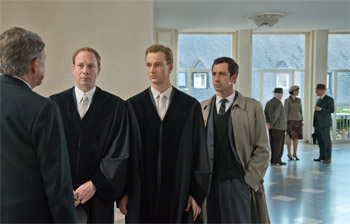 About The Production
About The Production
Labyrinth Of Lies tells the story of a young public prosecutor who sets out on an uncompromising search for the truth in the late 1950s. Struggling against every imaginable obstacle, he comes up against his own limits as well as those of a system that makes it easier to forget than to remember. Against the background of true events, Labyrinth Of Lies takes a very personal, particular look at the lifestyle of the "economic miracle" years - the era of petticoats and rock'n'roll, in which people wanted to forget the past and look ahead instead. The film takes an emotional and suspenseful look at a widely unknown chapter of these years which fundamentally changed the way Germany treated its past. A gripping story of courage, responsibility and the struggle for justice.
Directed by Giulio Ricciarelli, Alexander Fehling dazzles in the role of the young public prosecutor Johann Radmann. Alongside Fehling is a strong ensemble of young and established actors including André Szymanski as journalist Thomas Gnielka, Friederike Becht as Radmann's girlfriend Marlene Wondrak, Johannes Krisch as Simon Kirsch, Hansi Jochmann as secretary and "good soul" of the public prosecutor's office Erika Schmitt, Johann von Bülow as Radmann's colleague Otto Haller, Robert Hunger-Bühler as Senior Public Prosecutor Walter Friedberg, Lukas Miko as Hermann Langbein and theater legend Gert Voss as Prosecutor General Fritz Bauer, the driving force behind the Auschwitz trials.
Labyrinth Of Lies is a production of Claussen+Wöbke+Putz Filmproduktion, Uli Putz and Jakob Claussen, and naked eye filmproduction, Sabine Lamby. The production was supported by HessenInvestFilm, the FilmFernsehFonds Bayern (FFF), the Filmförderungsanstalt (FFA) and the Deutscher Filmförderfonds (DFFF).
"Some people in Germany still feel that a serious film should not really entertain the viewers," says producer Uli Putz. "Yet that is precisely what we want to do in Labyrinth Of Lies." The film relates the story of a handful of men and women who, despite massive social and political opposition, devoted themselves in the late 1950s to making sure that Germany should not flee from its past, which was not far away at that time. These men and women wanted Germany to be the first country in the world to prosecute its own war criminals in a court of law. "Contrary to the Nuremberg trials, the Auschwitz trials are unknown to most people today," states producer Jakob Claussen.
"In a way, we see our film as a means to prevent forgetting; it is not couched in the style of a neat, well-mannered, illustrated history lesson, however, but as the exciting and entertaining quest of a hero. Back then, it had taken more than five years from the first preliminary proceedings to the opening of the main proceedings of the first Auschwitz trial. The origins of this film also took about this long.
The seminal idea stems from the scriptwriter Elisabeth Bartel. She had read about this in a newspaper and approached the producer Sabine Lamby with the topic. She, in turn, immediately recognized the potential of this story, which had never been told in a cinematic version before. The two began developing the story and then brought on board Giulio Ricciarelli as co-author, Lamby's partner at the naked eye film production. During this phase, Ricciarelli developed such a fascination with this topic that he ultimately realised it had to become a lavish historical film, and that an experienced production partner had to be found in order to obtain successful results. Thus in 2011, Sabine Lamby turned to the Claussen+Wöbke+Putz Filmproduktion – and met with a most positive reception: "I read the script and was bowled-over by it," recalls Uli Putz. "It was soon clear that we wanted to tell this incredibly fascinating story together."
It began a two-year phase of meticulous script development. Very early on in this phase, the participants had agreed that Ricciarelli would direct. 'His award-winning short films confirmed his visual way of thinking, how masterfully he can direct actors and action," explains Uli Putz. "During this work on the script, it soon emerged that he also had a surprising access to his characters." Claussen adds: "In our intensive conversations during the development phase we noted that Giulio is very focused, listens attentively and knows exactly what he wants." Of course a directing debut always demands an extra portion of confidence on the side of the producers, says Uli Putz: "You don't know for sure what you're getting. But this can also lead to something very special. In our case, our hopes were fully realised."
Elisabeth Bartel and Giulio Ricciarelli pointedly decided to tell a fictitious story, albeit against the background of true events and with the inclusion of authentically existing persons. "While a Prosecutor General Fritz Bauer and a journalist Thomas Gnielka really did exist, our protagonist, the young public prosecutor Johann, was a fictitious character, a concentrate of the three public prosecutors who actually led the investigation back then," explains Uli Putz. "The biggest challenge posed by the development of the script was to balance out the individual elements: we wanted to retain the decisive facts on the one hand, and to add an emotional component to the action on the other." Moreover, says Uli Putz, there was a need to insert information as incidentally as possible about the time in which the story takes place. For example, the fact that many soldiers had not yet returned from captivity as prisoners-of-war.
The producers insist that the film should in no way be dogmatic or moralistic. "Obviously, we unquestionably support the view that it was right and important for our nation to deal with our past," stresses Uli Putz. But we absolutely wanted to show the opposite side of the coin as well. For instance in the person of the Senior Public Prosecutor Walter Friedberg, played by Robert Hunger-Bühler, who asks a very legitimate question: "Is it truly important that every son in Germany should wonder if his father was a murderer?" This film character is a fine example of the complexity of the situation at that time, remarks Claussen: "At the beginning, Herr Friedberg seems rather unlikeable, but then it turns out that he, of all people, was not in the NSDAP. We try to diversify and expand as broad a swath as possible of personal stories and fates.
In order to describe the historical events as faithfully as possible, the scriptwriters sought scholarly support from the very start: Elisabeth Bartel contacted the historian Werner Renz from the Fritz Bauer Institute during the research phase. "In the spring of 2010, Mrs. Bartel introduced me to the topic of the film for the first time," says Renz. In the following years, I read the various versions of the script." He attested that the authors commensurately reproduced the background story of the Auschwitz trials and of keeping to the essential facts as much as possible: "In my view, the screenplay is very authentic. It neither exaggerates anything nor distorts anything and correctly depicts the judicial inquiry."
Lead actor Alexander Fehling also joined the team very early on. Putz and Claussen already knew him from their collaboration on Frieder Wittich's 13 Semester. The producers assembled a roster of top screen stars who, for the most part, are not yet well known to a broad public. Among them is Gert Voss, a veritable legend in theater circles, but a rare guest on the screen. He "had a genuine hunger for a great cinematic role," notes Claussen.
While preparing for his role, Alexander Fehling had a chance to meet a real-life model for his film character: Gerhard Wiese, one of the public prosecutors who had worked on the first Auschwitz trial in the 1950s. "He lives in Frankfurt's poet quarter and was Reich-Ranicki's neighbor," says Claussen. "We were able to meet with him a couple of times, and during one dinner together, Alexander was able to clear up some very profane everyday questions such as: Did the young public prosecutors use the familiar form of address or the formal one in speaking with one another? Did they wear hats? How did they behave in the presence of Fritz Bauer?"
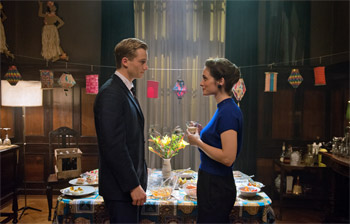 The former public prosecutor Gerhard Wiese came to the set one day to get an idea of the production. "We were shooting the scene in which all the prosecutors come together once a week, where Fritz Bauer distributes the cases in question," explains Claussen. "Giulio Ricciarelli led Mr. Wiese into the room and introduced him to the actors. All rose spontaneously and applauded him. It was so incredibly moving to see how this elderly gentleman of over 80 years finally had a chance to experience such an appreciation. For me, that was the most moving moment of our shoot."
The former public prosecutor Gerhard Wiese came to the set one day to get an idea of the production. "We were shooting the scene in which all the prosecutors come together once a week, where Fritz Bauer distributes the cases in question," explains Claussen. "Giulio Ricciarelli led Mr. Wiese into the room and introduced him to the actors. All rose spontaneously and applauded him. It was so incredibly moving to see how this elderly gentleman of over 80 years finally had a chance to experience such an appreciation. For me, that was the most moving moment of our shoot." The film offers a great deal of material that will stimulate discussions, says Claussen: "Back then, when it was necessary to establish the need for the Auschwitz trial, Prosecutor General Fritz Bauer voiced this provocative maxim: "No one has the right to be obedient." What he meant was that no one should be allowed to say afterwards that he was only following orders. Everyone has the duty to say No when such inhuman things are called for such as under the Nazis." The topic of personal responsibility is still valid today, too, asserts Putz: "How far does the requirement to observe instructions go? Does it free you from your duty to listen to your own conscience? To what extent do you have to assume responsibility for your actions yourself? These are questions that keep returning."
It is no one's aim to pass judgment over past generations, however, notes Claussen: "A certain humility is demanded of us today. It would not be fair to reproach our fathers and grandfathers from the comfort of our apartments. Instead, we have the task of making sure that something like Auschwitz does not happen again. This is the position taken by our film." And this is why the film is still relevant today, says Claussen: "Everywhere in the world systems are collapsing; just think of Egypt and Syria."
Uli Putz points out that the historical period in which the action plays out has hardly been examined on film so far: "Through our film, young audiences can thus have a glimpse at a time which they most likely do not know very well. In addition, the film also contains many stimuli to help us reflect on the contents and continue to explore this domain. The producer hopes that the theme will inspire various generations to watch the film together: "I feel that this story contains a wealth of conversation topics for families. And I would be honored if our film could make parents and grandparents aware of the importance of passing their knowledge on that time to the younger generations before it is too late."
"It was our intention to make a film that takes up an important subject, offers information and expands the audience's horizon, but still does not neglect the entertainment factor," stresses Uli Putz in closing. "Of course Labyrinth Of Lies is a kind of counter-program to shallow, superficial programs. Nevertheless, it definitely remains an entertainment film," asserts Jakob Claussen.
Labyrinth of Lies
Release Date: March 31st, 2016
MORE




